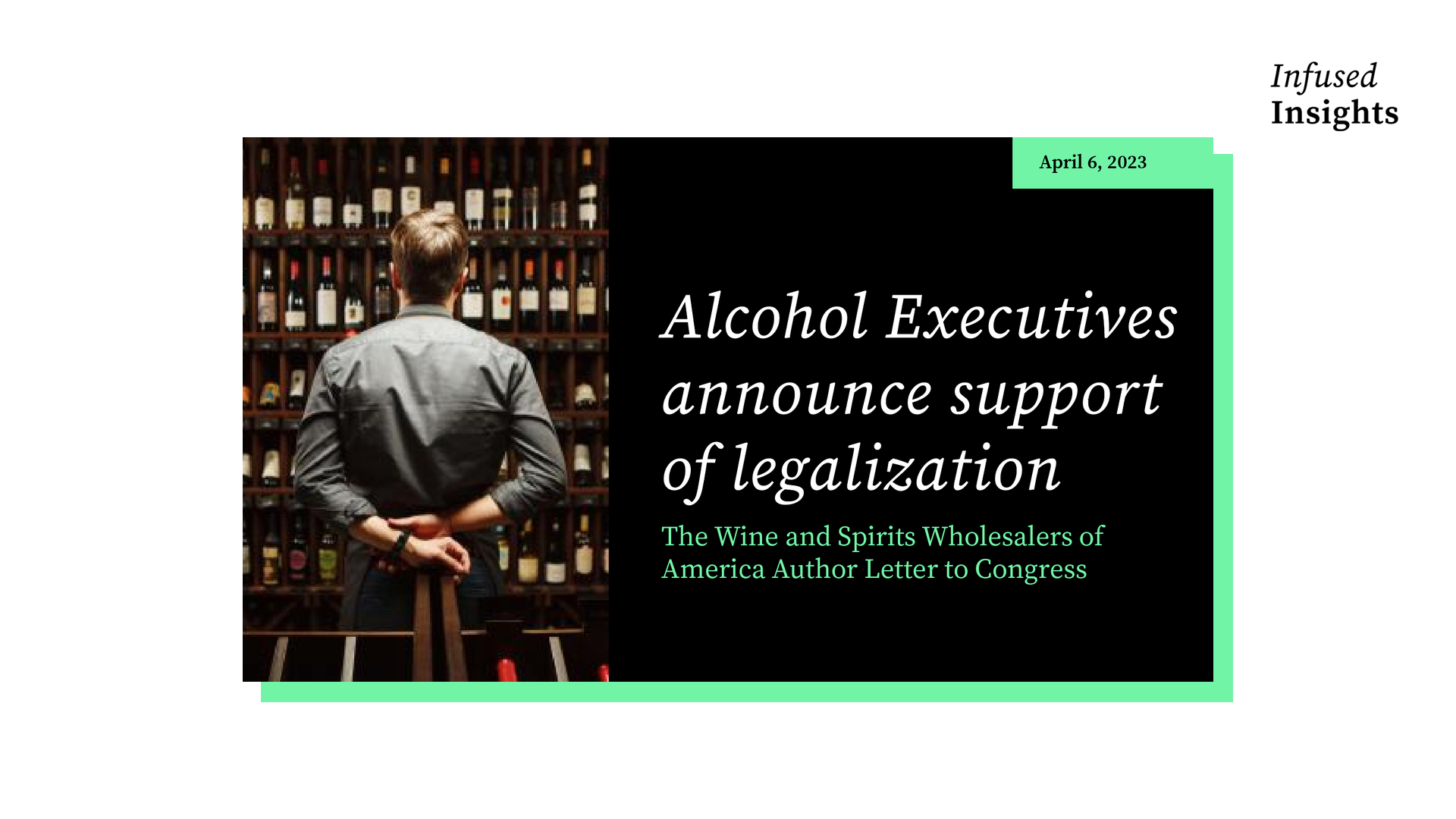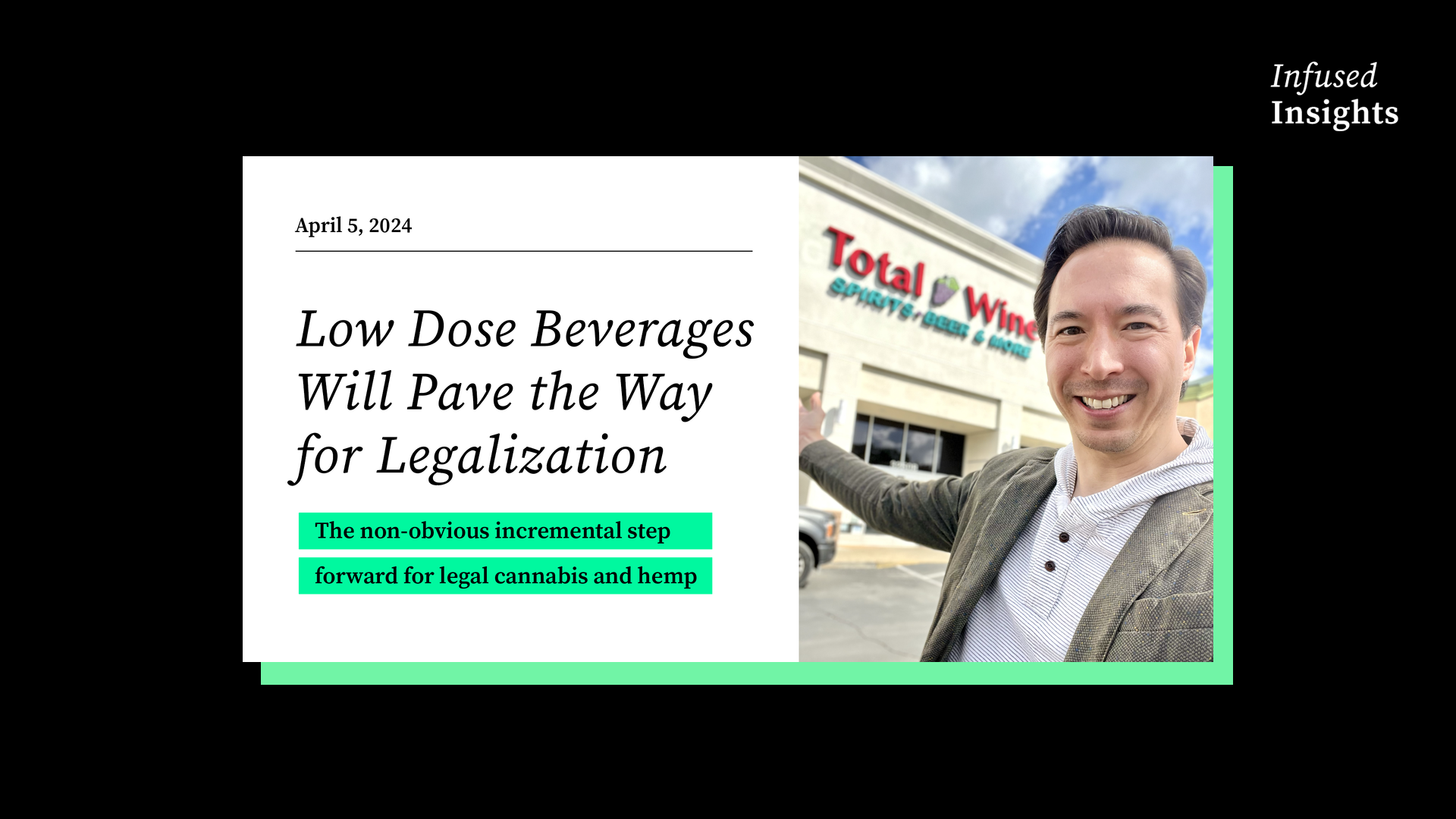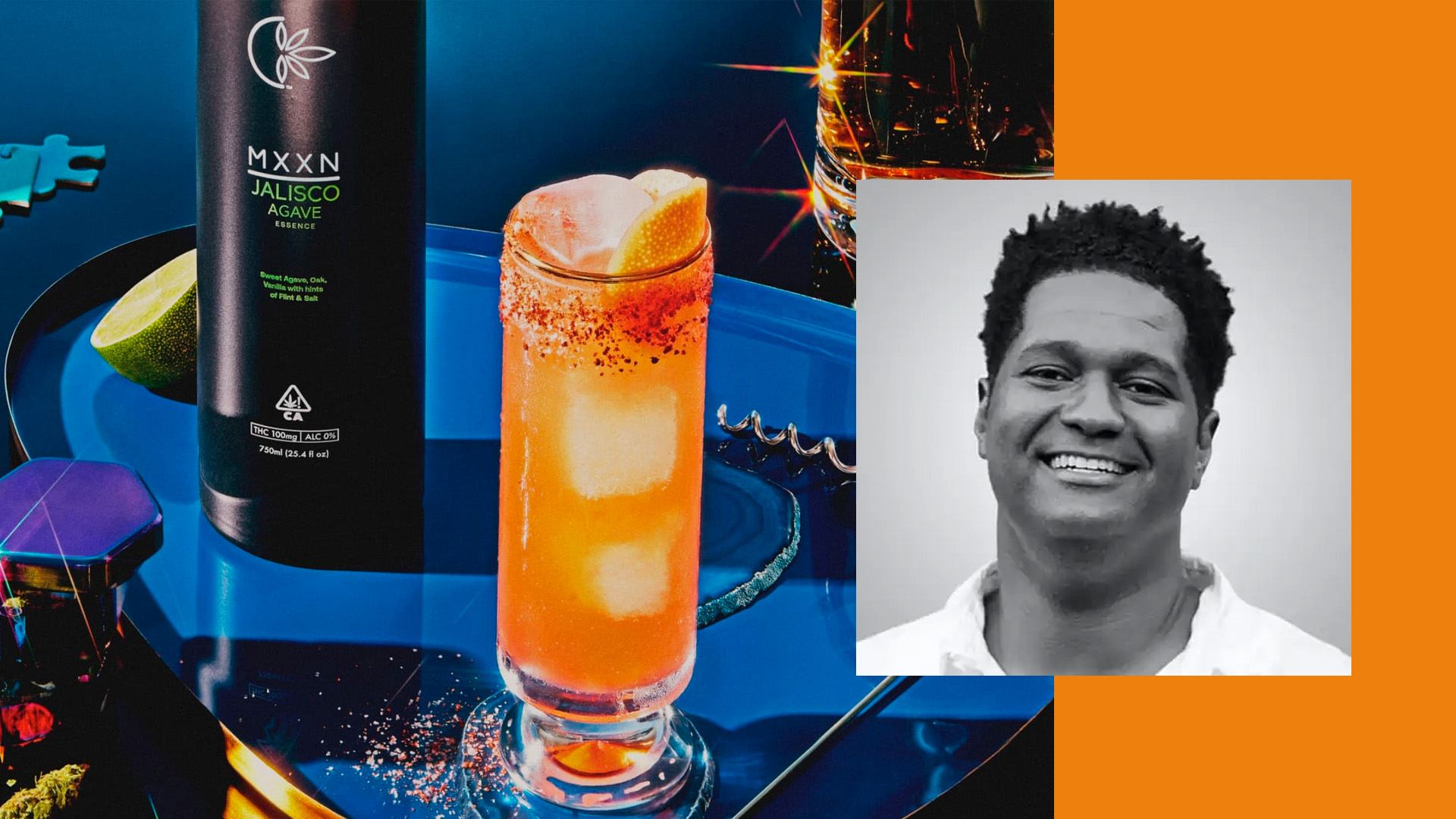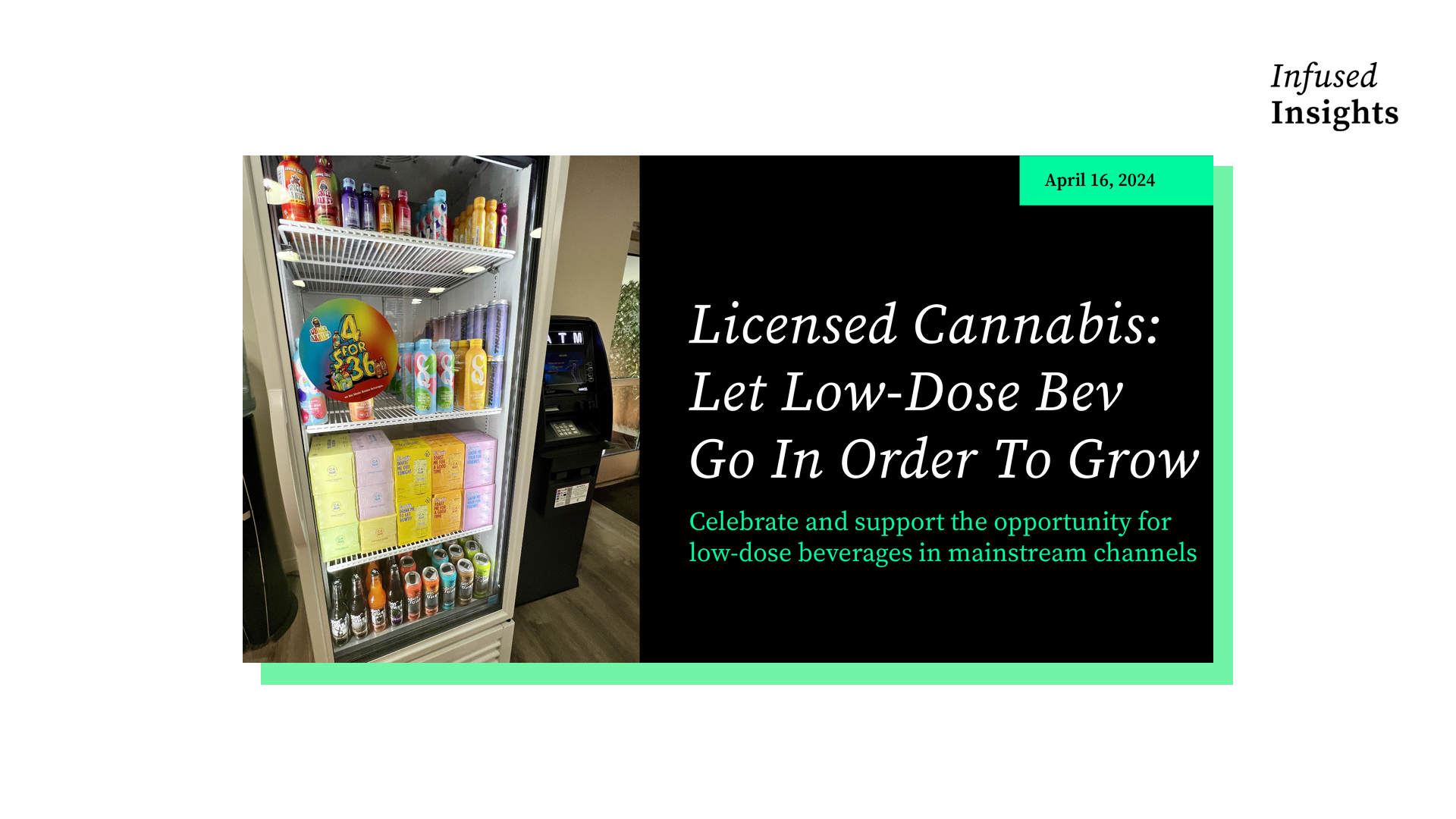Low Dose Beverages Will Pave the Way for Legalization
This post originally appeared on Ben's LinkedIn Newsletter, Infused Insights. You can read and leave comments here.
4 min read
 Ben Larson
:
7/2/24 4:11 PM
Ben Larson
:
7/2/24 4:11 PM

This post originally appeared on Ben's LinkedIn Newsletter, Infused Insights. You can read and leave comments here.
The Wine & Spirits Wholesalers of America (WSWA), a national trade association representing the wholesale distributors of wine and spirits, has announced its support for federal marijuana legalization in the United States by authoring a letter to Senate Majority Leader Chuck Schumer (D-NY), House Speaker Kevin McCarthy (R-CA), Senate Minority Leader Mitch McConnell (R-KY) and House Minority Leader Hakeem Jeffries (D-NY). The WSWA couches the transition from alcohol prohibition to legalization as “an American success story” (debatable) that should be replicated for cannabis (also debatable).
The suggested framework seemed to be pretty straightforward:
Sounds innocuous, but let's dig-in.
The WSWA identifies their organization and membership as "the vital link bringing an ever-expanding variety of brands from around the world to the places consumers buy them. As local, family-owned businesses, distributors are essential members of the economy." You can already begin to understand how they are approaching these conversations with regulators -- "Trust us, we know what we're doing."
But who are these "local, family-owned businesses?" Let's look at the organization's leadership:
Sure, there are some smaller operators represented, but that's largely because Southern and RNDC have the majority of marketshare and they need to keep a good front going. Anyone that know professional organizations, money talks and these two groups do a lot of talking. So while the WSWA only spends about $1M a year lobbying, their members certainly have more firepower to supplement these efforts. And for anyone keeping track, the revenue of these companies outpaces that of the entire cannabis industry.
The three-tier system is a legal framework that governs the production, distribution, and sale of alcoholic beverages in the United States. It was established after the repeal of Prohibition in 1933, and it is still in use today. Under the three-tier system, there are three distinct tiers or levels of operation:
The three-tier system is designed to ensure that alcohol is distributed and sold in a controlled and regulated manner, with the aim of preventing the sale of counterfeit or adulterated products, protecting public health and safety, and generating tax revenue for the government. The system also aims to prevent monopolies by keeping the production, distribution, and retail sectors separate and distinct from each other.
It may have prevented vertically-integrated monopolies, but arguable how effective it was in preventing oligopolies within the tiers.
Under the three-tier system, each tier is subject to its own set of regulations and restrictions, and businesses are generally not allowed to operate across multiple tiers. For example, a manufacturer cannot sell its products directly to consumers or retailers; it must sell them to a distributor, who then sells them to retailers. Obviously, exceptions do exist (e.g. tasting rooms and wine clubs). Similarly, retailers cannot purchase directly from manufacturers; they must purchase their products from a licensed distributor. This system creates a level playing field for all players in the industry and promotes fair competition.
The historic fight of cannabis versus the world has changed. State-by-state legalization has largely neutralized the threat of Big Pharma coming in and controlling the industry, but the increasingly hard-to-control access to intoxicating cannabis-infused products is accelerating the federal government's need to implement a system that they trust. Big alcohol, like it or not, has been in the back room for the past hundred years with fist fulls of cash, and you better believe that they're going to get their piece of the cannabis industry.
The larger operators in the alcohol industry have had the privilege and comfort of patience, but the time is nigh.
I wouldn't be surprised if this results in a three-tiered regulatory system that allows the large spirits brands to come in and own the first tier, the distributors like the ones represented by the WSWA to own the middle, and the retailers to largely be represented by liquor retailers and the current cannabis operators so that there can still be some semblance of the equity ownership the industry has fought hard to instate over the years. The industry will largely be regulated by the Alcohol and Tobacco Tax and Trade Bureau (TTB), and if I'm really putting on my prediction hat, it we'll probably largely have the GOP to thank for pushing it through. Unfortunately, this means we'll probably be disappointed by the lack of equity measures included in the legislation.
Put down the pitchforks, I'm not saying this is what I want, but what I think will likely happen. How long? Good question. Let's see how the 2024 Presidential race shapes up.
Similar to my last article, while none of this is specific to the infused beverage category, it only suggests that this will continue to support the push for the familiar form factor in liquor stores. As I've said to many folks in the past, the infused beverage category wins when it becomes a beverage alternative instead of a new cannabis form factor.
What do you think? Wanna place any bets?
Related Links:

This post originally appeared on Ben's LinkedIn Newsletter, Infused Insights. You can read and leave comments here.

Low or no-alcohol beverages have seen a boom in recent years as consumers look for ways to socialize and imbibe free from negative side effects like...

This post originally appeared on Ben's LinkedIn Newsletter, Infused Insights. You can read and leave comments here. {% video_player "embed_player"...